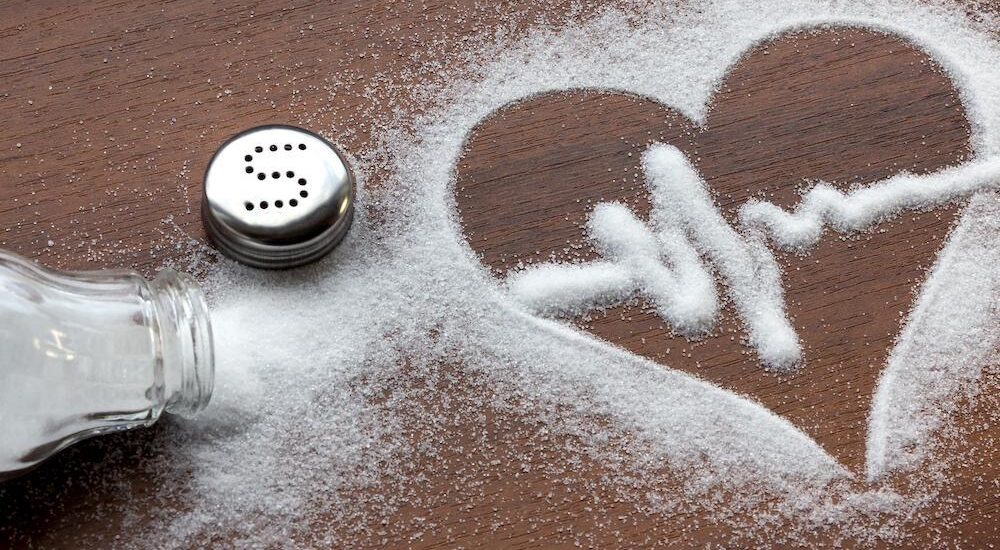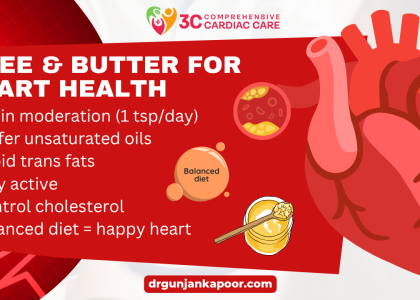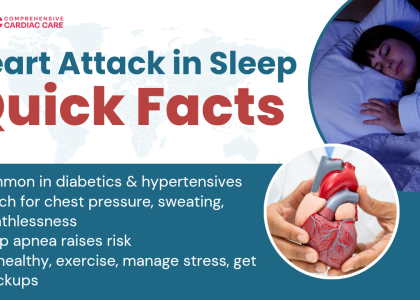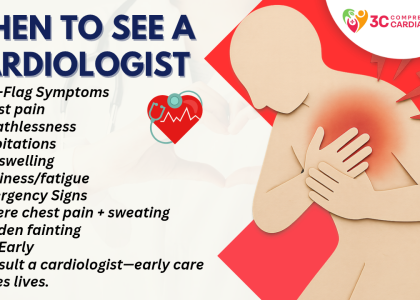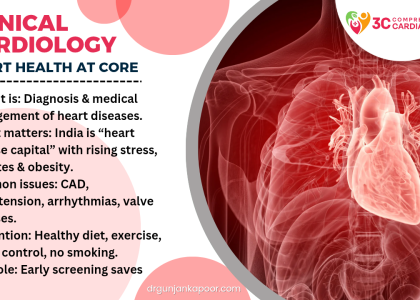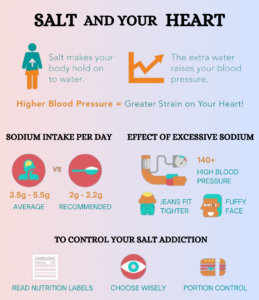
In today’s world, where processed foods are everywhere, keeping an eye on how much salt you eat is crucial for your heart and managing high blood pressure. Too much salt can lead to serious heart problems, like high blood pressure, which can harm your health.
Understanding how salt affects your blood pressure is key to preventing heart issues and staying healthy.
Heart Problems Linked to Too Much Salt
Eating too much salt is closely tied to several heart problems, especially high blood pressure. This condition strains your heart and blood vessels, raising the risk of heart attacks, strokes, and other heart-related issues. It can also make existing heart problems worse.
How Salt Affects Blood Pressure
Salt contains sodium, which affects how much water your body holds onto. Eating more salt than your body needs makes you retain water, increasing your blood volume and pushing up your blood pressure. Over time, high blood pressure can damage your blood vessels and organs, leading to serious health problems.
Salt-Sensitive vs. Salt-Resistant Hypertension
Salt-Sensitive Hypertension:
Salt-sensitive hypertension means that your blood pressure goes up when you eat too much salt. About 50%-60% of people with high blood pressure have this sensitivity. It’s more common in older adults, women, obese individuals, and those with kidney problems.
Salt-Resistant Hypertension:
Salt-resistant hypertension is when your blood pressure stays about the same even if you eat a lot of salt. It’s less affected by how much salt you consume compared to salt-sensitive hypertension.
Identifying Salt-Sensitive Hypertension:
To find out if you have salt-sensitive hypertension, doctors monitor your blood pressure over 24 hours. In people without salt sensitivity, their blood pressure usually drops a bit at night (Nocturnal Dip). But in those with salt-sensitive hypertension, this nighttime drop is smaller or not there at all. They also often have higher heart rates. These signs help doctors figure out the best way to manage and treat salt-sensitive hypertension.
Sodium and salt are different: Salt, like table salt, is a common source of sodium in our diets. For instance, five grams of salt equals about two grams of sodium. However, sodium also comes from other foods, especially processed and canned foods, such as monosodium glutamate (MSG), baking soda, and sodium benzoate. These ingredients add sodium to our diet beyond just table salt.
How Much Salt Should You Have?
Most adults should aim to eat between 2 -2.3 gm of Sodium ( equivalent to 5- 5.75 gms of Salt ) per day. The current Global intake of sodium is almost double at 3.5 – 5.5 gms of sodium per day. Many people go over the daily limit because of processed foods, eating out, and adding salt during cooking or at the table. To control salt, check food labels, choose low-sodium options, and cook more meals at home. While checking the sodium content of packaged food, less than 140 mg sodium per serving is a low-sodium food. Anything more than 400 mg of sodium per serving has a high sodium content.
Salt restriction for hypertension
Reducing salt intake can effectively lower blood pressure over time. For instance, limiting sodium intake to about 1.75 grams (equivalent to nearly one teaspoon of salt) has been shown to reduce blood pressure by 4-5 mmHg. This modest restriction in salt intake demonstrates significant benefits for managing hypertension.
Challenges in Cutting Back on Salt
Even though people know too much salt is bad, it’s hard to cut back. Cultural preferences, not knowing where hidden salt is in processed foods, and craving salty snacks make it tough. Social situations like eating out can also make it harder to control salt.
Salt Alternatives for Flavor
You can cut salt without losing taste. Use herbs, spices, citrus juices, vinegar, or salt-free seasonings to flavour food. Fresh fruits, veggies, whole grains, and lean meats can add flavour and nutrients without extra salt.
What’s Next for Reducing Salt?
We need to work together to cut salt in our diets. Educating people about salt’s risks and ways to eat less salt is crucial. Policies that lower salt in processed foods, promote healthier options, and improve food labels can help us all make better choices for heart health.
In summary, managing salt intake is vital for a healthy heart and controlling blood pressure. Understanding how salt affects your body can help you eat less salt, adopt healthier habits, and protect your health. Together, we can build a healthier future with fewer heart problems.
Join 3C’s subscription now for tasty, salt-free meal plans that help manage blood pressure without sacrificing flavour.

